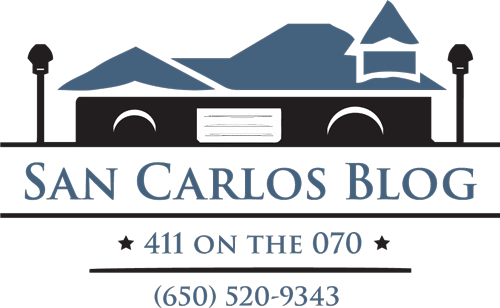
Trust sales are very common in San Carlos. Trust sales conducted by a trustee who has never lived in the property will require the buyer and the buyer’s agent to be at the top of their game when investigating the property. With very few exceptions, a trustee who has never lived at the property is exempt from having to fill out many of the traditional disclosure forms such as the Transfer Disclosure Form or Seller’s Supplemental Checklist.
First, it is important to distinguish the types of trust sales. Many people in San Carlos have their home in what is known as a Revocable Living Trust. This type of trust gives the grantor(s) the ability to revoke the trust at any time, as well as modify the trust and sell the property contained in the trust. Many folks in San Carlos put their home in a Revocable Living Trust as part of their estate planning needs. However, if the grantors (owners) have lived in the property prior to sale they are most likely not exempt from filling out all of the traditional disclosure forms.
The traditional scenario for a true trust sale comes when an owner passes away and a trustee who has never lived at the property becomes charged with the duties of selling the property. Usually, the trustee is a relative, bank or some other type of third party fiduciary. Since the trustee has never lived at the property they are exempt from having to fill out the Transfer Disclosure Statement and Seller’s Supplemental Checklist. Together, these two documents are usually the most important disclosure documents provided by the seller which will give a prospective buyer intimate knowledge of the property from the view of the current owner.
Not having this information can make a purchase especially tough, but not impossible. The level of diligence that should be performed by a buyer and their agent increases substantially. Your agent will need to be a driving force behind the diligence. It is always a good idea to ask your agent about their experience with trust sales. When I was still practicing law we had cases come through where there was very little, if any, additional diligence conducted on behalf of the buyer during a trust sale. The buyers were not advised appropriately by their agent in terms of the amount of diligence necessary to purchase the home and the end result was usually a very expensive trip to an arbitrator. Simply put, the number and type of investigations into the property will need to increase with a trust sale.
Based on what I have seen in San Carlos, here are some items to consider when deciding to put a bid in on a trust sale:
(1) Visit the property at all times of the day and at night. Barking dogs, garage playing bands, traffic conditions, noise from parks….the list goes on and on. These are all items which would normally appear in the disclosure reports provided by the seller, but will not be available because of the trustee’s exemption. You will need to conduct these investigations.
(2) Walk the neighborhood on a Saturday or Sunday and talk to the neighbors. You would be amazed at how easy it is to get the scoop on the entire block by speaking with a neighbor or two who is out gardening or washing their car.
(3) Instead of limiting yourself to the normal property and pest inspection reports, consider a chimney, roof and drainage reports as well. For example, drainage is a major issue in San Carlos. Not knowing if the property receives standing water under the house is one of the drawbacks of not having the formal disclosure documents from the current owner. Get an expert to help identify the missing information.
(4) Conduct a permit search at City Hall. Often times the listing agent will list the home according to county records. The trustee will most likely not have any permit information on the home. Take the time to run a permit search.
(5) If the prospective home is on a hillside or the initial property inspection report recommends a foundation inspection, get one.
Finally, unless you are planning a substantial remodel with the purchase of a trust sale, you and your agent need to build in enough time during the contingency periods to allow you sufficient time to conduct all of the additional investigations. I chose the word “mitigating” in the title of this article because I believe it is impossible to completely replace the documented, first-hand experience of living in a home with a professional report. However, by conducting the right investigations and exercising the correct amount of diligence you can certainly limit your amount of exposure.
Mitigating Hidden Pitfalls of Trust Sales in San Carlos
August 18, 2008
2008-2025 SCEF Diamond Sponsor
 Since 2008 I am proud to have donated auction items and cash totaling $300,000 to the San Carlos Education Foundation.
Since 2008 I am proud to have donated auction items and cash totaling $300,000 to the San Carlos Education Foundation.Subscribe
Get it straight from the top! Bob Bredel is the #1 Realtor for total San Carlos sales volume 2008-2025. Never miss out on San Carlos news by getting our blog in your inbox. As an added bonus, receive quarterly real estate market reports.
Ask Bob Bredel
-

Contact
Bob Bredel
650-520-9343
bob@bredelhomes.comAddress
Christie’s International Real Estate Sereno
662 Laurel Street, Suite A
San Carlos, California 94070Subscribe
Subscribe to receive notifications when new posts are added to the San Carlos Blog.



Leave A Reply